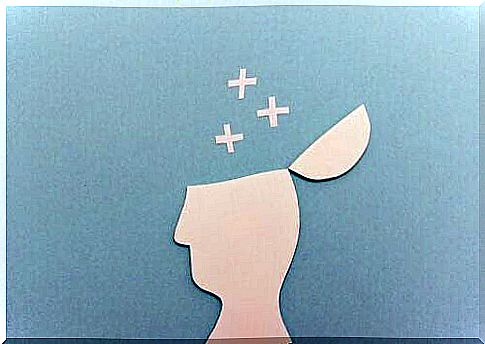Some Interesting Psychological Effects

Psychology is a science capable of offering explanations for a multitude of events that occur on a daily basis. Without realizing it, as human beings we fall into the trap of certain biases or psychological effects.
Some are harmful, some are not. Some are typical in some societies, and some are common among adolescents, etc. However, they all have one thing in common: our brains use shortcuts to save all the information we need to manage on a daily basis. And this sometimes gives rise to interesting effects.
Saving the information that we accumulate over time is very important. Even though our brains can sometimes make mistakes, most of the time, these biases or effects favor our adaptation.
Think back to the cave era. Better to be fast and efficient than analytical and slow. This last trait, even though it might lead us to a more correct answer, could also lead us to being too late.
In the news, advertising, business and culture have echoed these psychological effects we are falling into and used them as means to improve their sales. It must be said that it works perfectly. We are therefore going to offer you a sample of the most usual and important psychological effects, although there are many more.

Psychological effects
Barnum effect
How many times have you read your horoscope and thought: this is exactly what is happening to me !? Know that this is not the case. Your brain is cheating on you, again. What you have just read does not happen to you in particular. You fell victim to the Barnum effect, which is also known as the Forer effect.
The latter takes place when we read or listen to certain descriptions which, a priori, seem to adapt perfectly to what we know about ourselves ; however, if we analyze them well, we will realize that they are only general descriptions, vague and not very precise which could correspond to the profile of a good part of the population.
Take the test, read on:
“Be careful with the projects you take on, Libra, you do a lot more than you should. Review your limits. This week someone will ask you for help; try to do what you can, but don’t blame yourself for the emotional change in that person. You may have a health concern but it won’t last long. You will come back to the charge as always. Monday and Tuesday you will feel very active but the pace will gradually decrease in intensity ”.
As you can see, anyone – or almost – could relate to this description. Who is not taking on a personal project and sometimes works too much? Who does not know a loved one going through a bad patch, has never had a cold or has never had back pain? Monday and Tuesday we are more active, it’s obvious, we are just coming out of the weekend. It is normal for fatigue to build up afterwards.
The anchoring and adjustment effect
This effect is widely used by advertising campaigns. Imagine, for example, that you are going to the sales and that you like a coat very much. You have two tags: one with a fairly high price, and the other with a much lower price, which would be the current price.
You then buy the coat, without giving it much thought. What happened ? The first price served as the anchor: you took this benchmark thinking you were getting a good deal and you couldn’t miss this opportunity.
The ultimate attribution error
This occurs when we oversize someone’s personal motives at the expense of situational motives. In other words, we tend to regard a person’s “character”, “personality” as responsible rather than thinking that that person’s circumstances or surroundings may have influenced their actions. So this leads us to erroneous explanations of how other people are.
The false consensus effect
It takes place when we overestimate the amount or degree of people who agree with what we are thinking. It is a way of exaggerating the confidence in our own beliefs, even if they are false. This effect can have negative consequences: it prevents us from opening ourselves to the world, to the ideas of others, to their way of thinking and feeling things.
Therefore, we take the risk of losing valuable information that would be extremely useful to us. This is the case, for example, if we own a business and work with people who do not think the same way. These people could give us other ways of looking at things.

Illusory correlation
Here, we overestimate the relationship between two variables which are actually independent. Think, for example, of pathological gamblers. They can say to themselves that “the slot machine is going to be good for them because nothing has fallen for a long time”.
Here we link time to the probability of winning. Now, we know that these two things have nothing to do with it. Especially when you know that slot machines follow a program of variable or random reason.
Self-fulfilling prophecy
It is also known – with some nuances – as the Pygmalion effect in the educational field or the Rosenthal effect in the field of organizations and businesses. This is an effect that arises when we have very strong beliefs about a concrete subject and act on them.
Reality ends up confirming these beliefs to us, as if it were a prophecy. For example, a person who suffers from pathological jealousy may end up promoting infidelity because of this jealousy which was unfounded. The fact that she doubts her spouse, spies on her and harasses her will tire the other, who may – or not – end the relationship.
The effect of the blind spot
Finally, the blind spot effect tells us that most of the time we don’t recognize our own biases and effects. We think of it as something that “happens to others”, whereas it happens to all of us at different levels and degrees.
As you can see, no one can get rid of the psychological effects. It is interesting to know them and recognize them when they appear, for example during sales, various promotions, in case of addiction, etc.
When the psychological effects are doing us more harm than good, trying to name them, knowing they exist and not falling for them can be a good thing. Did you recognize yourself in any of these effects?










